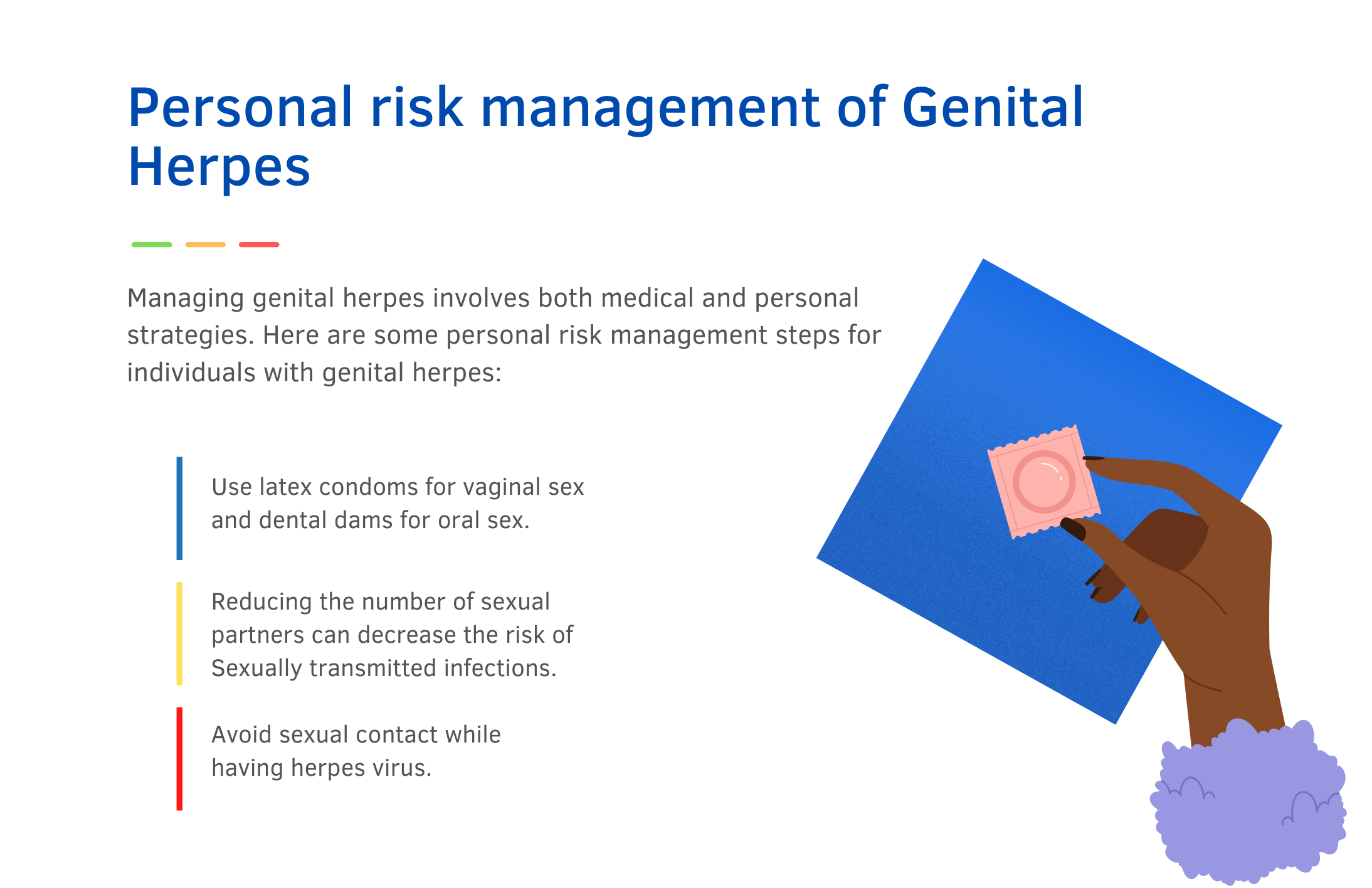John Smith
Apr 22, 2024 . 1 year ago
Understanding Genital Herpes
Genital herpes is a common infection that spreads through different types of sexual contact – oral, anal and vaginal sex. It is caused by two types of viruses called HSV-1 and HSV-2. HSV-1 usually causes cold sores on the mouth. But it can also cause genital herpes. HSV-2 is the primary cause of painful blisters around the genital and anal areas. The signs and symptoms of genital herpes include itching and pain when peeing and flu-like feelings; for instance, being very tired, feeling sick and having body aches.
Psychological and Recurrence Factors
Apart from its physical impact on human health, genital herpes can lead to psychological distress due to the stigma linked with the condition. The herpes virus can remain active in the body's nerve cells for a specific period, making the disease recurrent. Many triggering factors may lead to recurrent episodes of symptoms such as emotional stress, sickness or a weakened immune system.
Symptoms of Genital Herpes:
Initial outbreaks:
The first signs and symptoms of herpes virus can vary from person to person and usually appear within two weeks after exposure to infection. This genital herpes can affect the health of both genders, males and females. The most common symptoms involve:
- Itching or ache in the genital area of both men and women. The symptoms of genital herpes in females involve vaginal itching and discomfort in the scrotum and penis in men.
- Small, painful sores around the reproductive organs of both genders
- Blisters around the anus.
- Gray thick discharge from the urethra and vaginal area with an unpleasant odor.
- Influenza symptoms such as fever, fatigue, swollen lymph nodes, etc.
- Pain during pee and blisters on the thigh in severe infections.
Repeated outbreaks:
Herpes virus can lead to recurrent outbreaks. The repeated episodes of infection are less severe than the initial one. They can happen from time to time due to triggers. The most prevalent outbreaks involve:
- Pain and tingling sensation in the infected area when blisters recur.
- The blisters often heal quicker than the initial blisters.
Transmission of Genital Herpes
This ailment is simply a sexually transmitted infection that is passed on through sexual activity with your partner via oral sex, anal sex, and vaginal sex when rough sexual contact is practiced. This viral infection can spread through direct contact with the sore. It is essential to note that the herpes virus can be transmitted through:
- Genital intimacy with an infected person even without visible blisters can lead to contracting this infection.
- Oral sex with a person suffering from oral herpes can lead to HSV-1
- Sharing sex toys with an affected individual
- In many cases, the virus spreads from one part of the body to another like by fingering to the eyes.
What Complications are Linked to Genital Herpes?
Genital herpes is classified as a chronic disease. An untreated herpes infection can lead to many health complications, especially in individuals with a weak immune system.
- Open sores increase the risk of sexually transmitted infections including HIV.
- If the herpes sores develop in the Urinary tract, it can cause bladder issues such as UTI.
- Neonatal herpes is when a baby gets infected during delivery. This is the most severe and life-threatening situation.
- In rare cases, it directly infects the spinal cord and brain infections.

Genital Herpes Best Treatment:
There is no specific cure for this viral disease. However, telehealth practitioners usually prescribe genital herpes medication online to reduce the severity of the infections. Here is a list of common therapies to diagnose the infection:
- Medications such as famciclovir, valacyclovir, and acyclovir help to minimize the duration and severity of the blisters.
- Warm baths and over-the-counter painkillers can help relieve discomfort.
- Avoiding triggers can reduce recurrent outbreaks. These triggers involve stress, surgeries, and illness.
When to Consult a Doctor?
- During an active outbreak for accurate testing.
- If you or your partner have potential herpes symptoms.
- When you are starting a new sexual relationship.
Telehealth Services for Genital Herpes Treatment
Telehealth services have become significant in treating such health conditions. Many authentic health panels are offering genital herpes treatment online. They provide a confidential way for individuals to receive diagnoses and prescriptions without the need to visit a healthcare facility in person. These health services are beneficial for shy people and introverts who find it difficult to share their health concerns with a doctor in person.Telemedicine platforms like ours, Alphacare Inc., provide a comfortable way to manage the condition. We help patients access essential support and medical advice to control outbreaks and reduce transmission risks.
Final Thoughts
It is essential to stay informed about the signs, risk factors, prevention, and treatment of genital herpes. You can enjoy healthier and more satisfied sexual well-being by having sex education. The symptoms of genital herpes in men and women can lead to severe health issues if left untreated. Therefore, an honest talk with your partner and regular checkups can help decrease the risk of sexually transmitted infections like Genital Herpes.
Woodrow Joshua
1 year agoA wonderful blog!